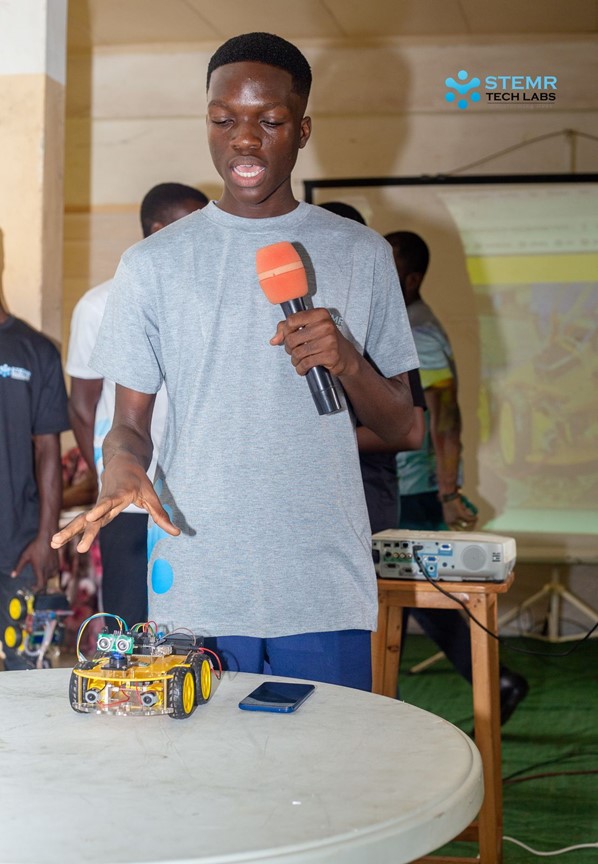STEMR Tech Labs has launched a transformative robotics project aimed at providing underprivileged basic school students in Adenta with essential technological skills. This initiative encompasses 30 students from 19 local schools.
The project’s core objective is to empower Junior High School (JHS) students who lack access to computers by introducing them to coding, basic electronics, robotics and web development through a comprehensive training programme.
It seeks to bridge the digital divide by offering a unique learning experience that fosters innovation and equips these young minds with skills essential for the digital age and for the development of Ghana in the future.
In a concerted effort to support this mission, STEMR plans to provide 15 to 20 computers to the participating schools, further enhancing the students’ access to technology. Moreover, the project also aims to train ICT teachers to ensure sustainable growth in technological education.
STEMR official launch and project exhibition
Dr. Stephen Adu, Deputy Director-General of the Ghana Education Service, presided over the official launch and project exhibition event, and he expressed profound gratitude to the facilitators and sponsors.
In his opening remarks, he commended both graduating and continuing participants for their dedication and commitment. Dr. Adu extended his appreciation to the parents for their invaluable support, as well as to all project members and stakeholders for their contributions.
Dr. Adu emphasised the importance of the project in enabling students to become global change-makers. He highlighted the significance of quality education, especially in an era where artificial intelligence (AI) has revolutionised daily life.
“We are now in a competitive world and for that matter, if you are not able to move yourself from where you are now, you will be in trouble in the future. Our young ones have so many things at hand which we did not enjoy,” he stated.
Furthermore, Dr. Adu underscored the role of AI in simplifying tasks and the limitless opportunities it presents. He encouraged the students to harness their new-found skills to innovate and drive positive change, stating: “You are now the world changers, so produce better things with your skills”.
Dr. Pius Gadosey, Lead Facilitator for STEMR and a Senior Lecturer at Lancaster University, Ghana, announced that the project’s scope extends beyond a single municipality. While addressing the audience, he highlighted that the initiative, currently underway in the Adenta Municipality, will later expand to include the Ablekuma North District. The ultimate goal is to empower children to create their robots and master coding.

Dr. Gadosey went on to discuss the challenges the project has faced, particularly in training ICT teachers. Originally, the plan was to equip a few ICT teachers to carry on the programme as it expanded to other municipalities. Unfortunately, the ICT teachers failed to attend the training sessions.
Nevertheless, he encouraged the Headteachers of the municipality to engage with the ICT teachers, emphasising the importance of their presence during training. He believes that having these teachers participate will create a more conducive learning environment.
“We’ve encountered some challenges, and we’ve had a limited number of individuals willing to assist. Initially, the idea was to involve ICT teachers from various schools so they could accompany students during their Saturday morning training sessions,” he explained.
Project showcase
During the event, participants had the opportunity to present their projects, which were developed as a result of the training. These projects were specifically designed to address societal challenges and showcase the students’ creativity.
Notable projects included an automatic trash can, an automated water tap that dispenses water, an automatic plant watering system based on preset schedules, an automated bubble machine for entertainment, and an obstacle-avoidance boat, among others. Participants received well-deserved awards and certificates for their commendable efforts and active participation in the project.
STEMR promises a brighter future for these underprivileged students, equipping them with the skills needed to succeed in a technology-driven world. This initiative not only empowers the youth, but also fosters a culture of innovation and progress in the community.










